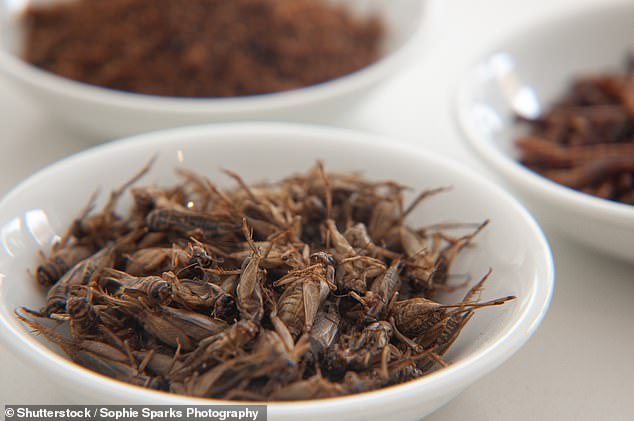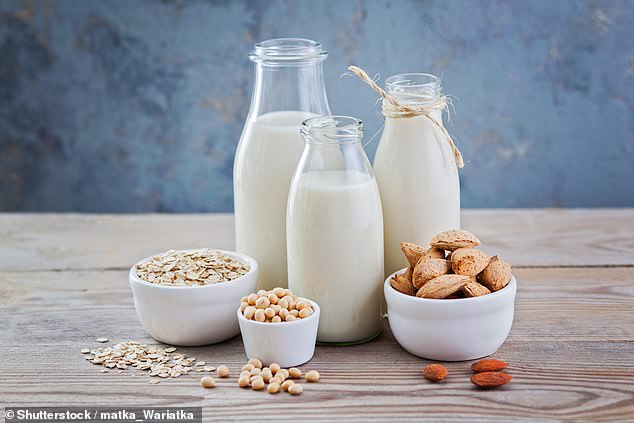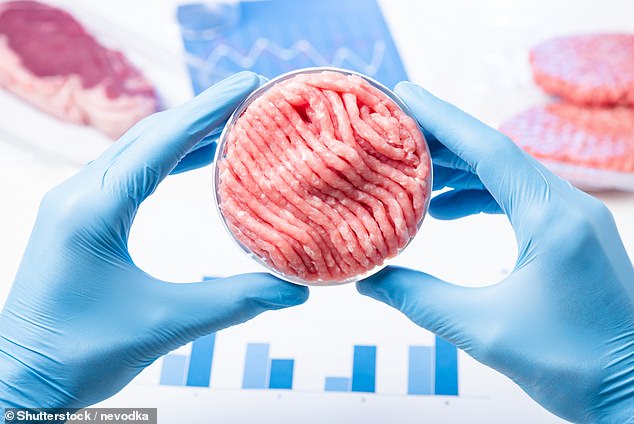Lab-grown meat and insects could soon become a regular part of our diets thanks to £15m in taxpayer funding.
The National Alternative Protein Innovation Centre (NAPIC) is being created in the hope of finding sustainable alternatives to foods like steak and chicken.
These could include terrestrial and aquatic plants such as cereals, legumes, tubers and nuts, fungi such as mushrooms, algae such as kelp, insects and laboratory-grown meat.
Scientists said they hope to find tasty, affordable and healthy proteins that are better for the environment and help reduce emissions and individual carbon footprints.
They even promoted the idea of introducing “sweet proteins” into foods as an alternative to sugar in an attempt to help combat Britain’s obesity crisis.
Experts say that as the world’s population continues to rise, supplementing traditional agriculture with alternative protein sources is “mission critical” to sustainably meet growing demand.
The National Alternative Protein Innovation Centre (NAPIC) is being created in the hope of finding sustainable alternatives to products such as steak and chicken (file image)

These could include terrestrial and aquatic plants such as cereals, legumes, tubers and nuts, fungi such as mushrooms, algae such as kelp, insects and laboratory-grown meat.
The centre is a collaboration between researchers from the University of Leeds, the James Hutton Institute, Imperial College London and the University of Sheffield.
Dr Rob Hancock, deputy director of the Centre for Advanced Plant Growth at James Hutton, said: ‘We currently import over £15bn worth of protein products, meaning meat, dairy and seafood.
‘In addition, the UK imports £3 billion of animal feed, so we need to move to a system that allows us to produce more of those protein products in the UK.
“We also need to do it in a way that is more environmentally friendly and less harmful.”
Another expert on the project, Professor Karen Polizzi from Imperial, said one way the centre could help improve the British diet would be by harnessing “sweet” proteins, such as those found in tropical plants, which could be used as a substitute for sugar.
“To give a concrete example, there are some proteins that have a sweet taste,” he said.
‘So, imagine, you could use that protein to sweeten different products and reduce the population’s sugar consumption.’
Professor Louise Dye, co-director of the Sheffield Institute for Sustainable Food, said experts wanted to stress that alternative proteins were not intended to dictate what people should eat.

One potential example the experts raised of where the lab’s work could be applied was finding the ideal combination of dairy milk with plant-based milks to reduce their environmental impact while still offering customers what they expect.
“We’re not going to tell people to eat insects,” he said.
‘We are looking at alternative proteins from many plant sources and also from different protein production methods.’
One potential example he gave of where the lab’s work could be applied was finding the ideal combination of dairy milk with plant-based milks to reduce their environmental impact and still offer customers what they expect.
“Blending plant-based milk and dairy milk, for example, is a good example of what we can do to produce milk with an optimal sensory profile, but that reduces our reliance and dependence on dairy products and their environmental population in a truly ethical, safe and healthy way,” he said.
Protein alternatives have been available in the UK for several years, such as soya milk and Quorn mince.
However, figures show that they only represent a small percentage of our daily protein intake and studies highlight concerns about taste and sensory sensation.
Some have also argued that lab-grown meat is an ultra-processed food (UPF) due to the likely addition of additives such as artificial colors and flavors.
Professor Dye said: ‘We accept that there is a real need for protein because it is such an important part of our diet.
‘It is essential for health and we know that currently only about 9 percent of the protein bought in supermarkets comes from alternative proteins.
‘The rest of our proteins come entirely from animal proteins.’
He said that to encourage people to eat alternative proteins, they need to have an appealing texture and taste.
On the possibility of alternative proteins being considered ultra-processed foods, she said: ‘I think the UPS debate is perhaps a distraction, and I would be very cautious about calling alternative proteins ultra-processed foods.
‘Not necessarily. They will require some processing, but at what point do we understand that that is ultra-processing?’
‘If you look at the foods that most people label as UPF at the moment, they are energy-dense and high in fat, salt and sugar.’
The centre will be funded by the Biotechnology and Biological Sciences Research Council (B2B) of UKRI and Innovate UK.
Those behind the project believe it could act as a “catalyst” for the UK’s growth potential in alternative proteins, generating £6.8bn annually and creating 25,000 jobs.

